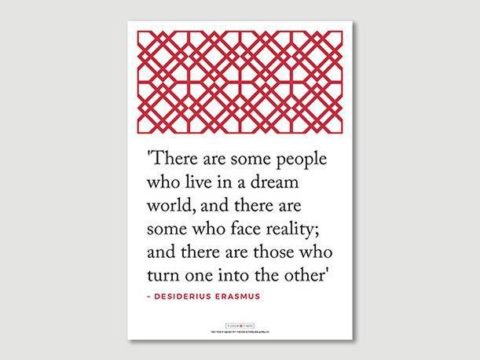Anne of Cleves: Life Story
Chapter 3 : An Unfortunate Meeting
Bad weather kept Anne trapped in Calais for a fortnight. During that time, she made every effort to learn about her new country and subjects. She admired the fleet, learnt to play cards, and asked to be shown English dining etiquette. During this hiatus, Anne had it conveyed to her, that Henry was especially eager to have more children – to have only one son was a risky state for a king.
Two days after Christmas, there was a break in the weather. Anne and her fleet of fifty set sail, landing at Deal around 5pm, where she was met by Charles Brandon, Duke of Suffolk, and his wife, Katherine Willoughby. She did not stay at Deal but immediately moved on to Dover Castle where she rested briefly before heading for Canterbury, met en-route by Archbishop Cranmer. She slept her first night in England at the old abbey of St Augustine, which had had some hasty works done to fit it for her arrival. By New Year’s Eve, she was at Rochester Castle.
Meanwhile, Henry had been entertaining himself with fantasies about the romantic love that would immediately be inspired in both their hearts on meeting. Unusually for a king, he had chosen all three of his wives for personal reasons – Katharine of Aragon was a political choice as well, but he could have avoided marrying her had he wished to. He was simply not prepared for the type of arm’s length political marriage that most royalty had to tolerate, even if most marriages turned out reasonably well. Unable to wait any longer to fall in love again, he decided to meet Anne en route.
Tales of chivalric love, popular in elite circles in the early modern period, often featured an unexpected meeting between a princess and a young man where they instantly fell in love, for her to discover later that he was really a prince in disguise. This had led to arranged ‘accidental’ meetings prior to formal introductions, in which the lady was aware of the man’s true identity but pretended not to be. James IV had introduced himself to Henry’s sister, Margaret, in such a way, and Louis XII had used the same trope in his first meeting with Henry’s other sister, Mary.
Henry now planned to pay an unexpected call on Anne, presuming that she would instantly fall in love with him, even though he was in disguise. It even seems that Henry thought that she would be genuinely fooled, but still fall in love with him, rather than that she would be aware of the rules of the game and pretend. Unfortunately for both, Anne had never been exposed to this convention. She was standing upstairs at a window, watching a bull baiting in the yard below, when Sir Anthony Browne, the king’s Master of Horse, entered with the news that he had a gift from the king. He was followed into the room by several other gentlemen, dressed identically.
Anne received them civilly, but not warmly. Suddenly, one of the strange men attempted to embrace her. Anne was astonished and embarrassed. She did not know what to say or do. She took refuge in silence and turned back to the window.
Henry, in his turn, was mortified. He scurried out of the room to take off his dull cloak and dress himself in purple velvet – the unmistakeable badge of royalty. He returned to Anne, who, now apprised of the truth, behaved as courteously and humbly as she possibly could. The damage, however, was done. Henry had been made to look a fool, and the dart of love had clearly not entered Anne’s heart on first beholding him. He gave her his gifts of furs and speedily departed. ‘I like her not’, was his pronouncement.
The story that Henry called Anne a ‘Flanders Mare’ is a myth. Henry was, in general, courteous towards women and would not egregiously insult a lady of noble birth, but he was not physically attracted to her, and, with his desire to have more children uppermost in his mind, he immediately consulted Cromwell on how he might avoid concluding the match. Had he known what Anne was like, he fumed, he would never have let her step foot on his territory. What remedy could his minister find?
Cromwell had no solution. He tried to persuade Henry that Anne had ‘a queenly air’. Henry could not point to anything specific about her that was wrong – she was ‘well and seemly’, he admitted, but ‘nothing so fair as she had been reported’. It does not seem that he accused Holbein of misrepresenting Anne in her portrait – it was just something about her that he did not like. Most probably her initial failure to be impressed by him as a man, before she knew him to be a king.
Anne of Cleves
Family Tree
